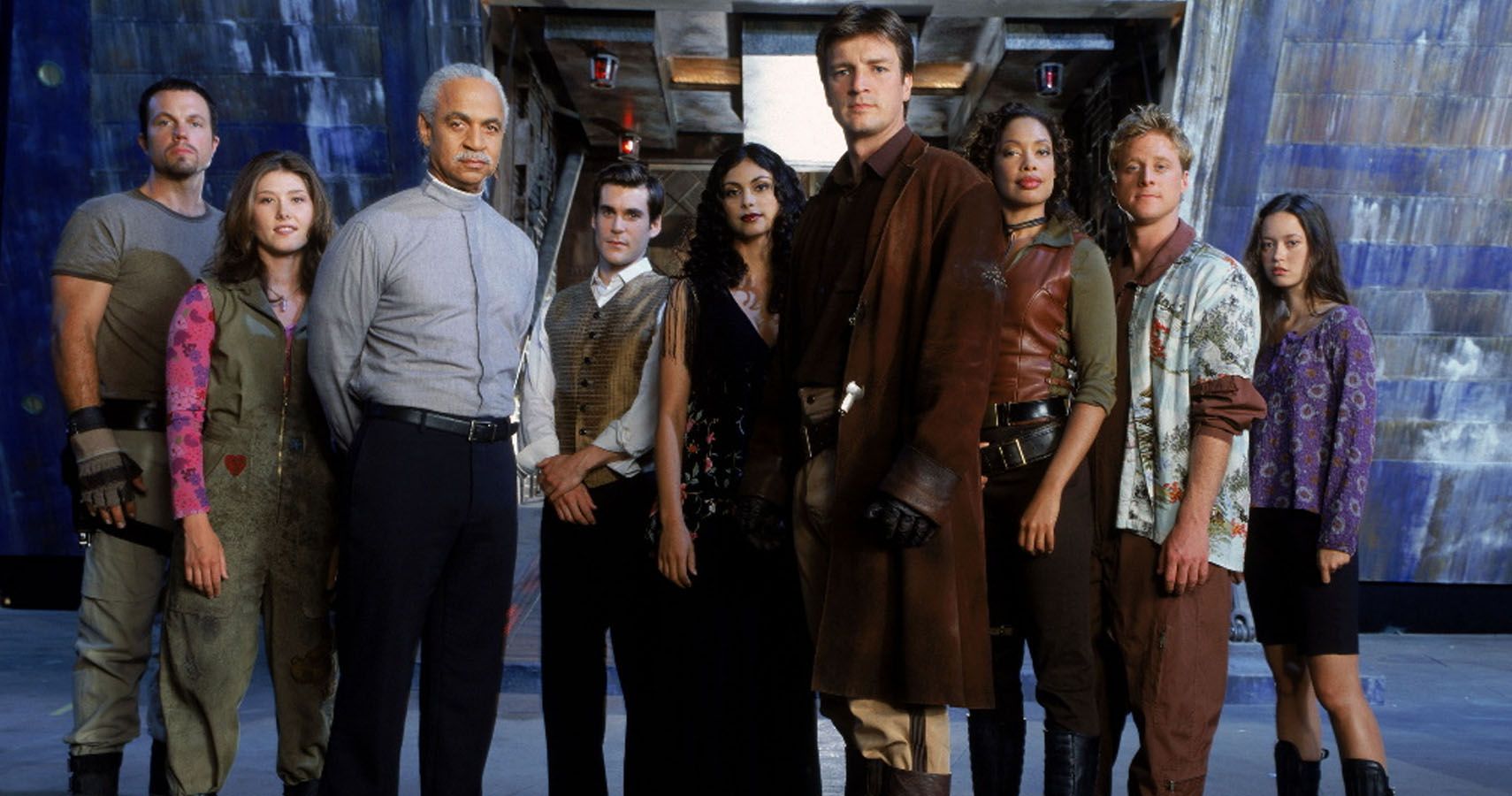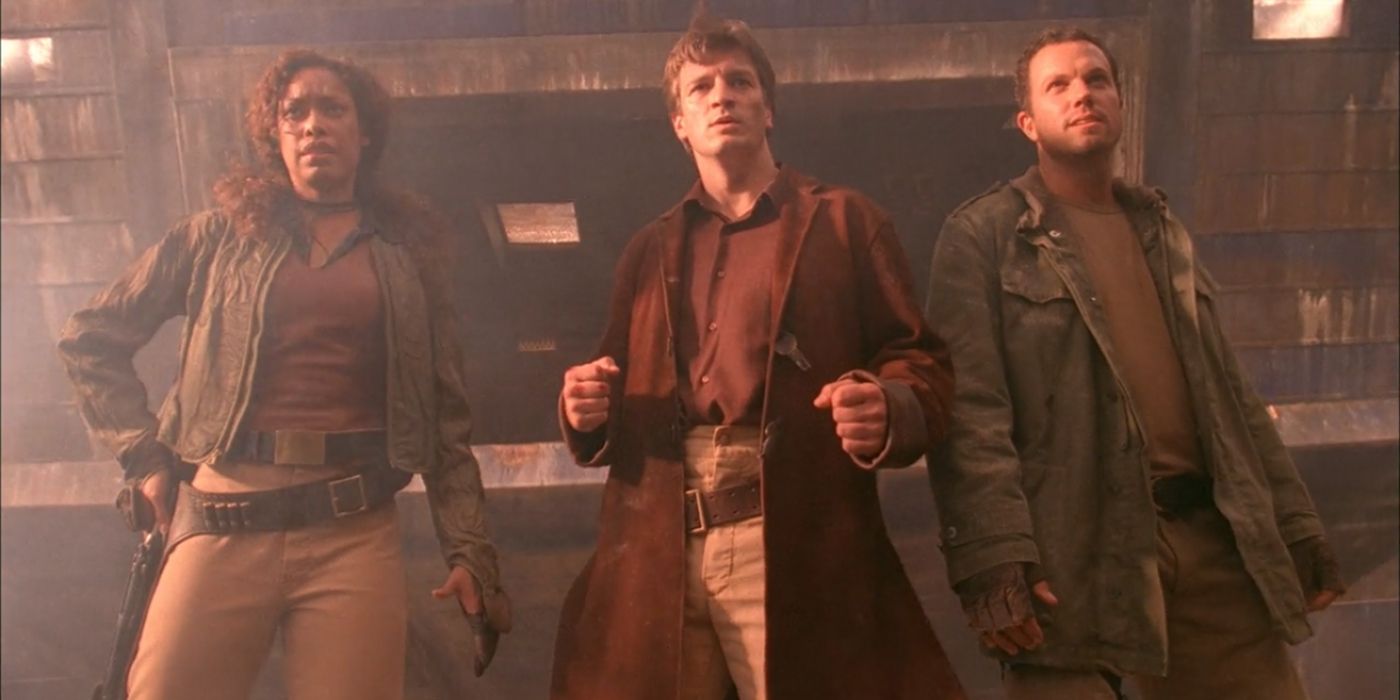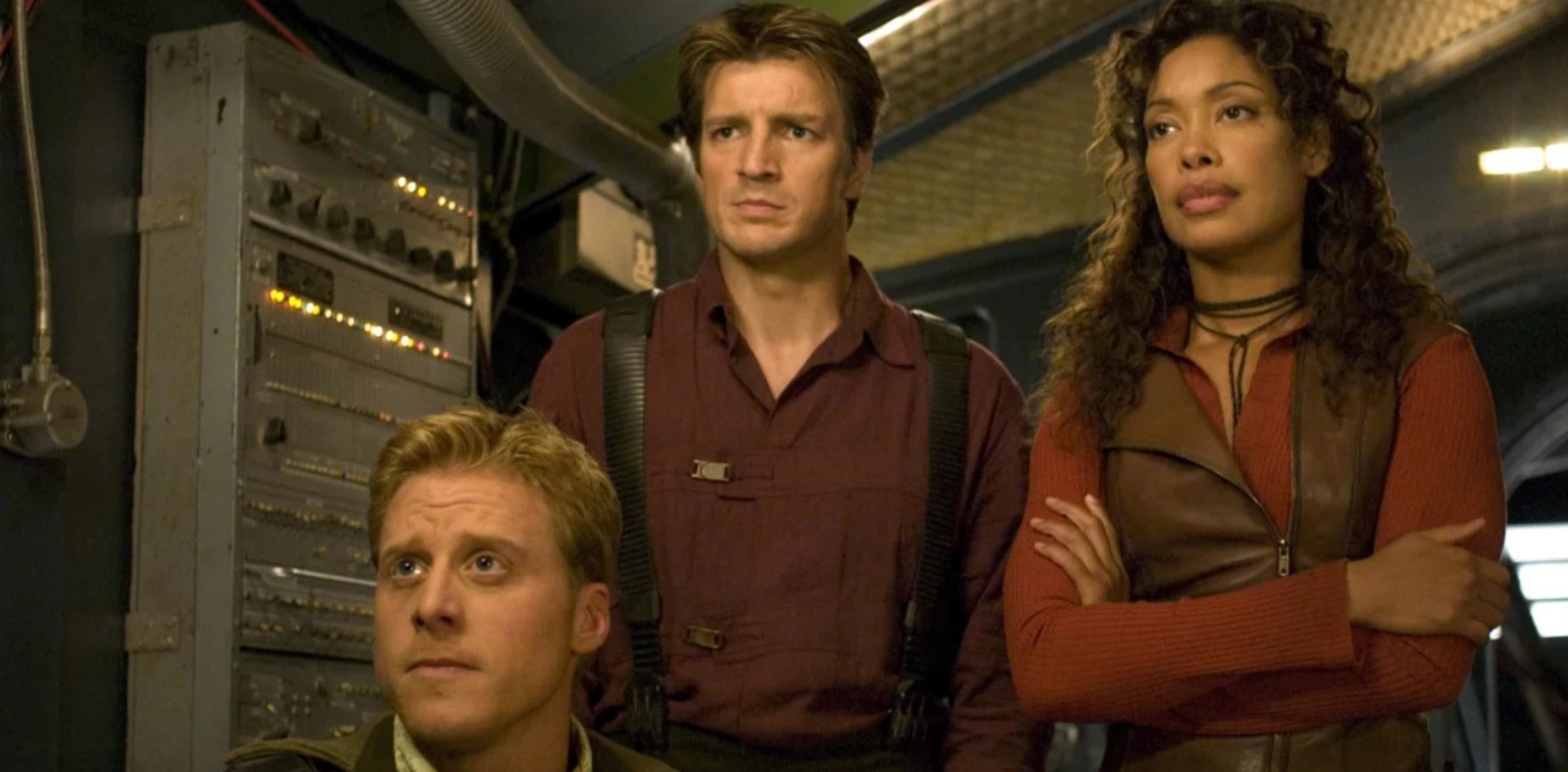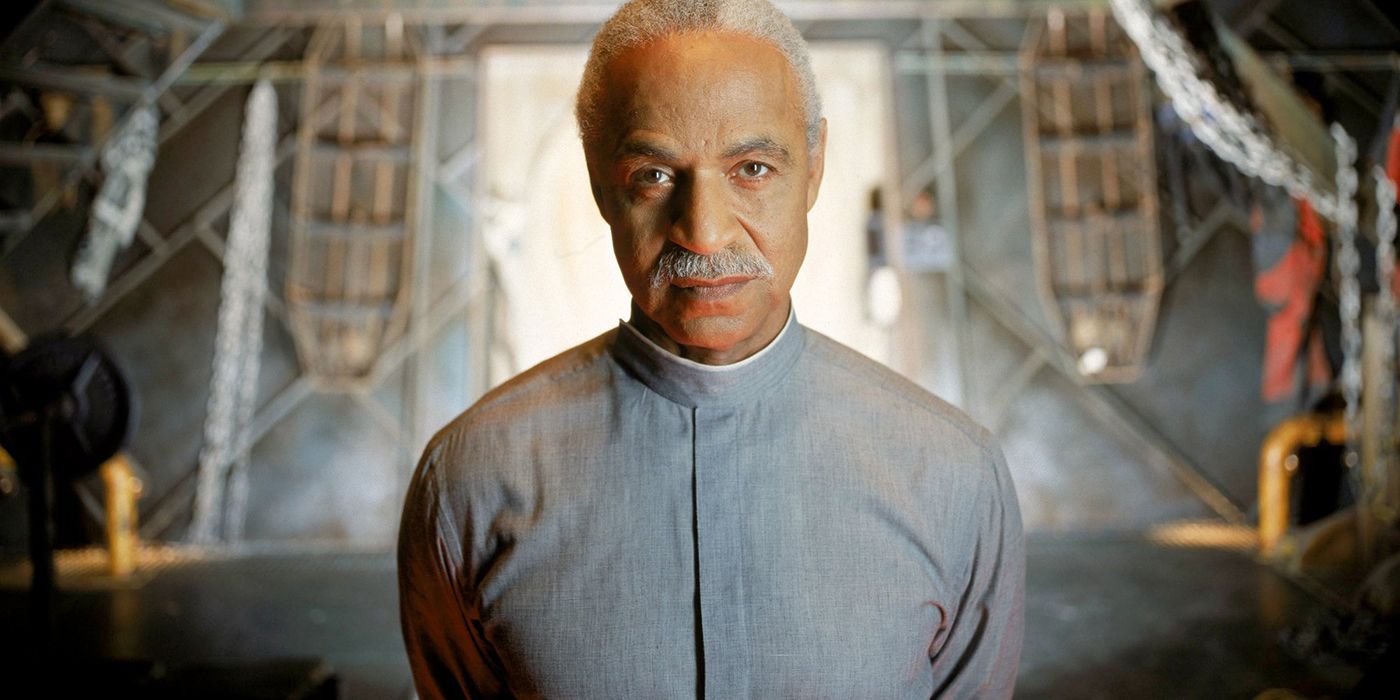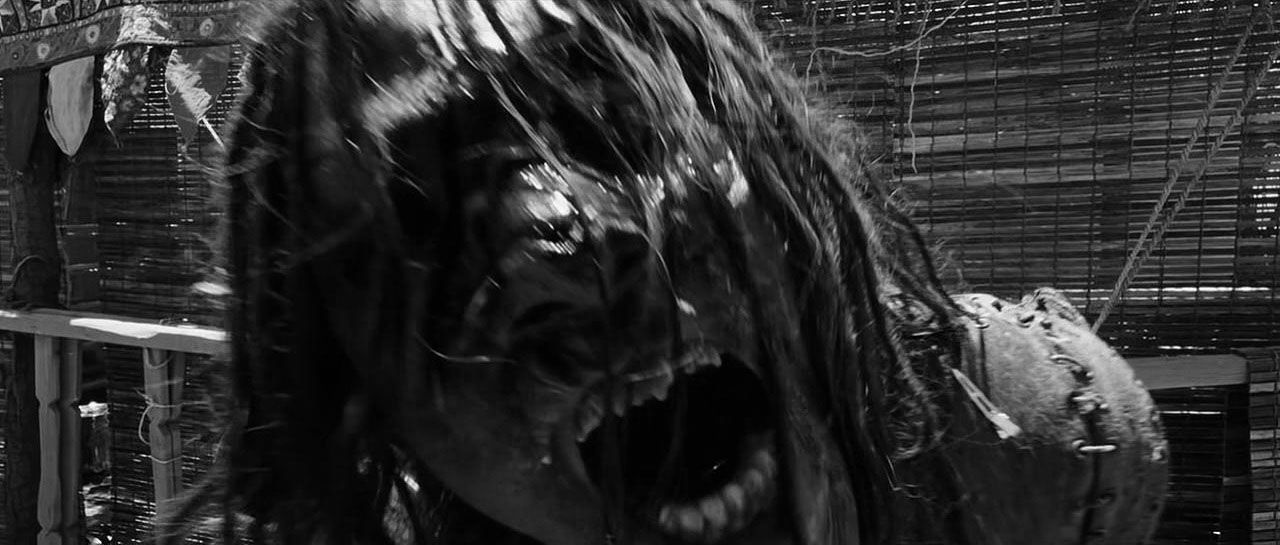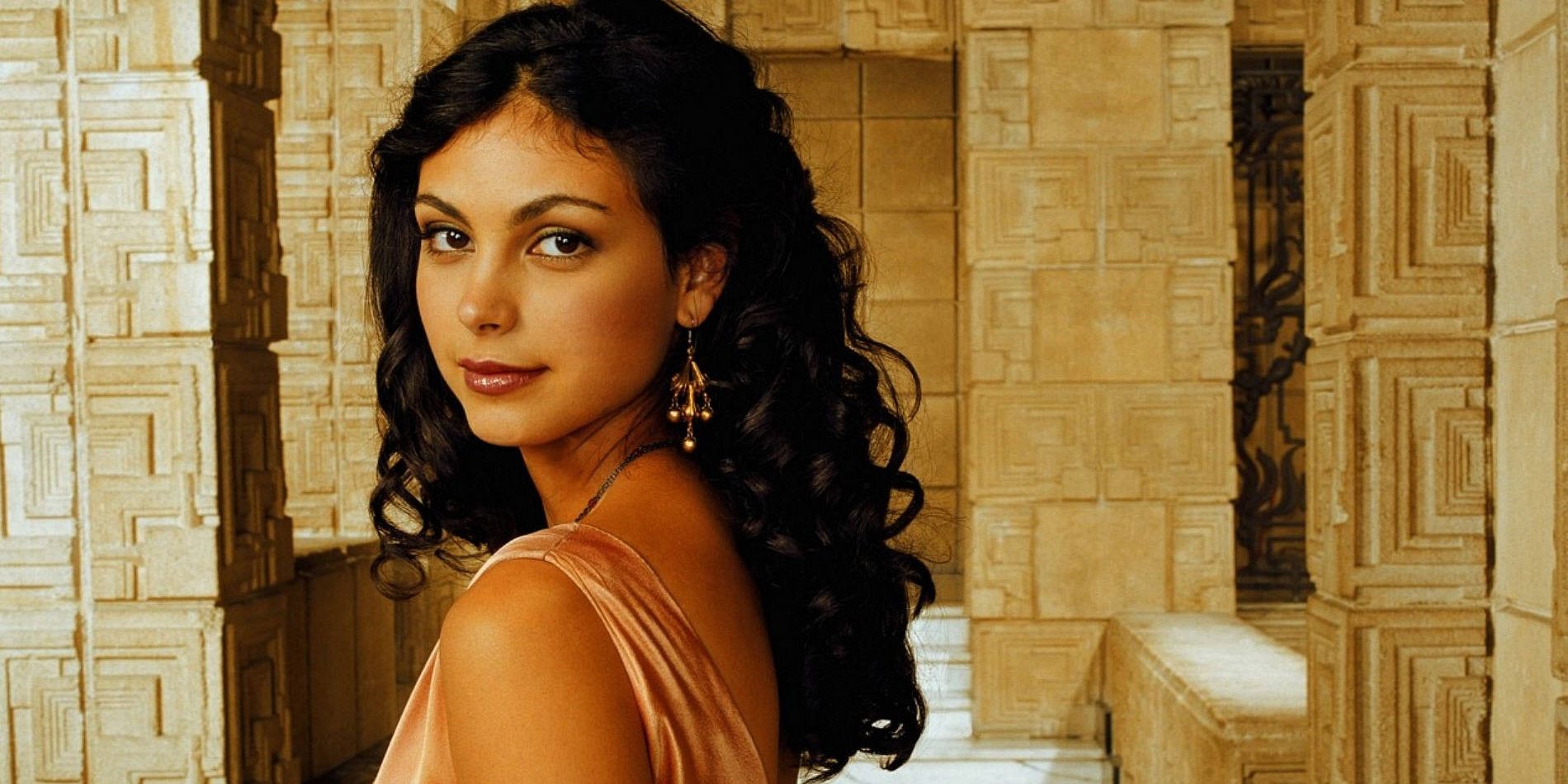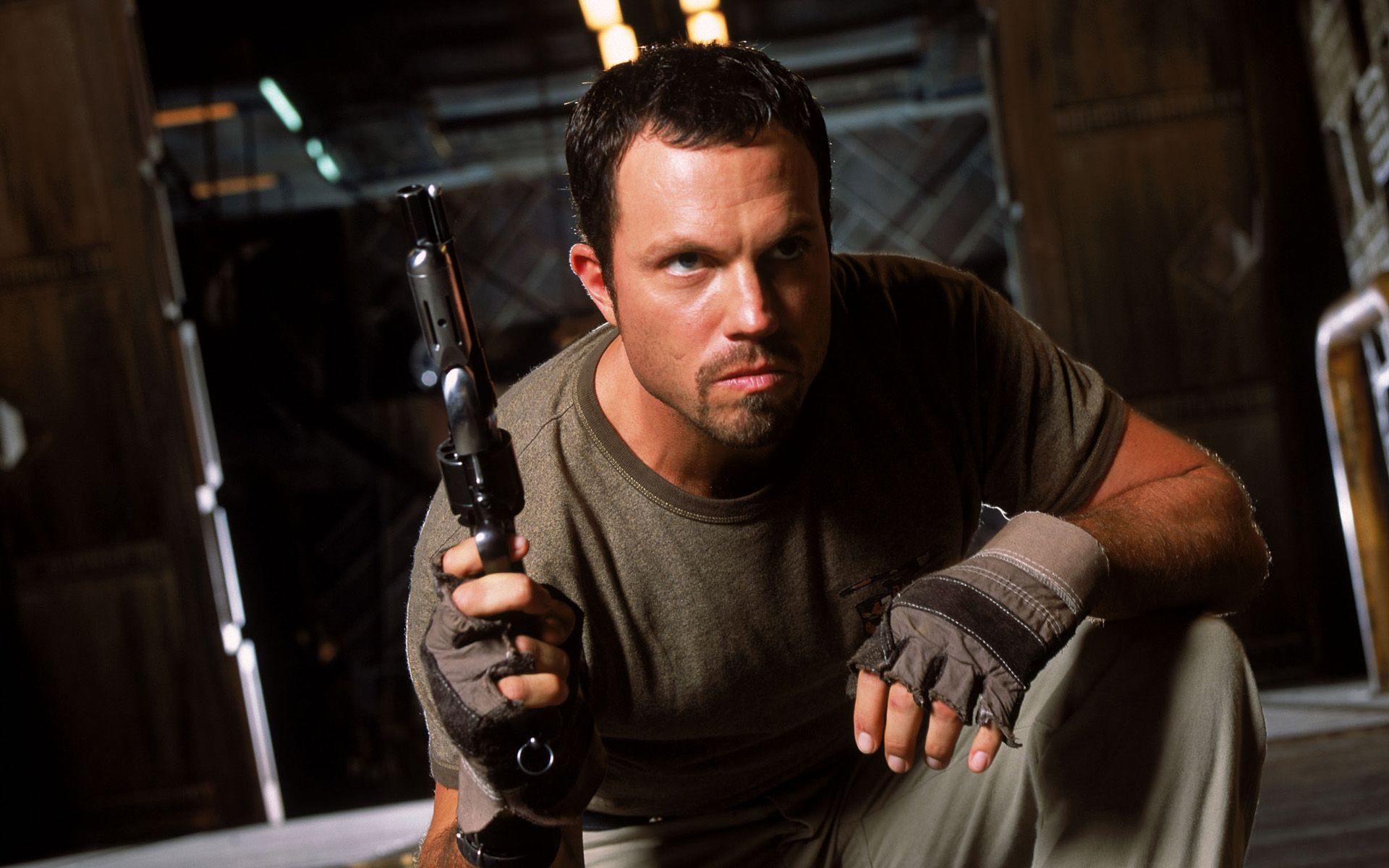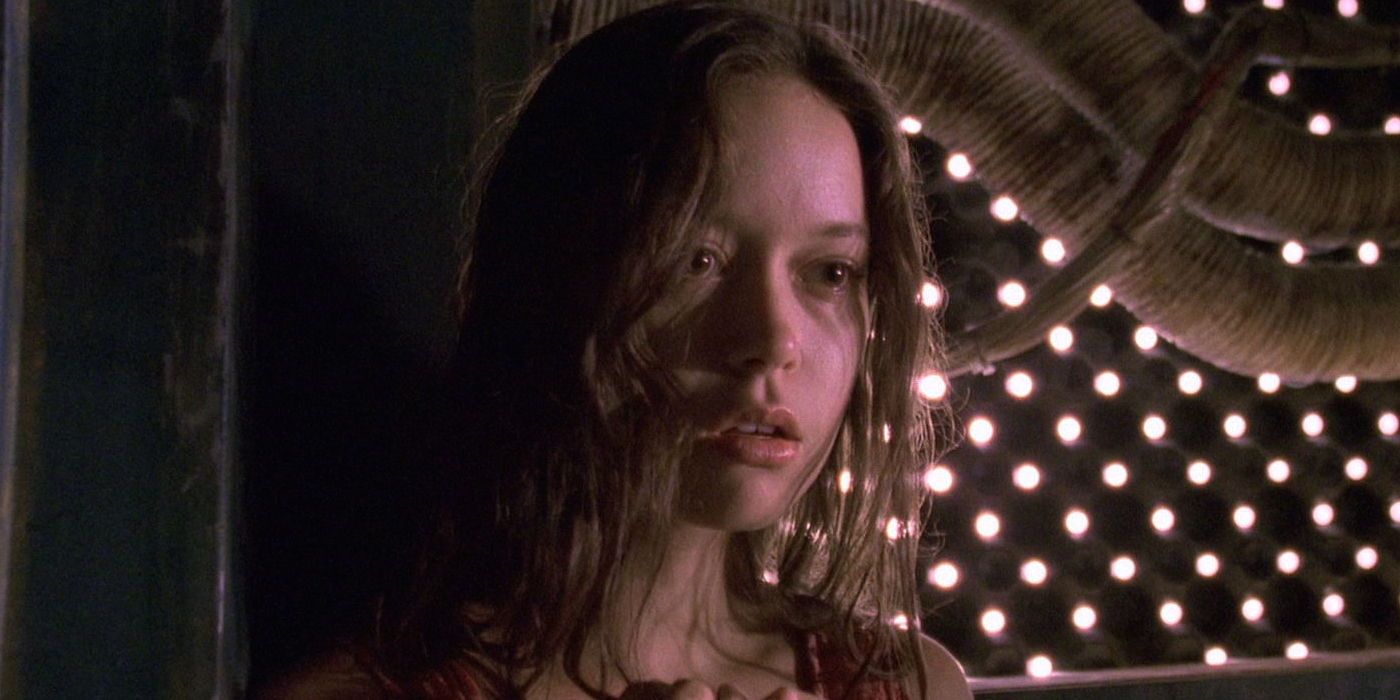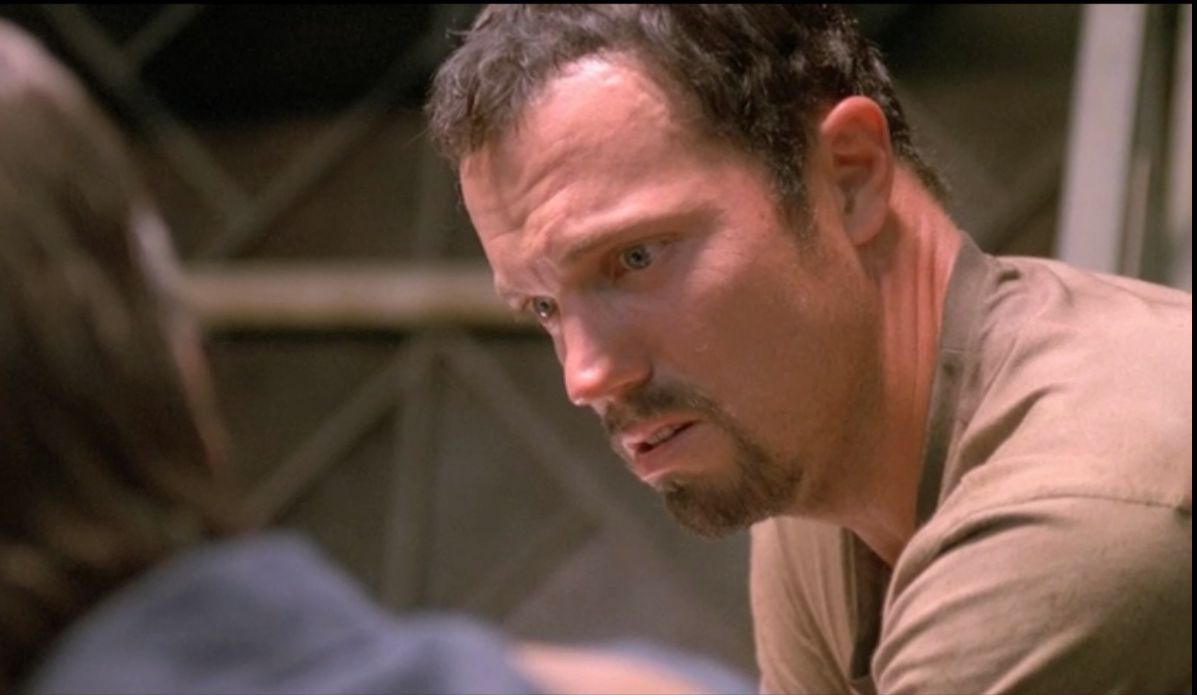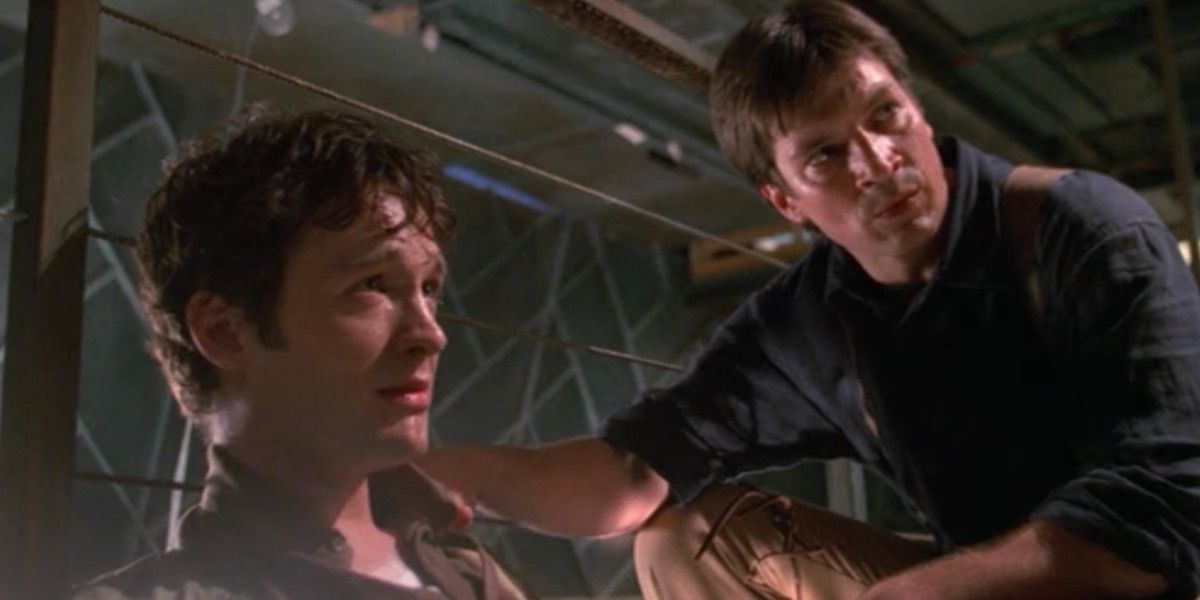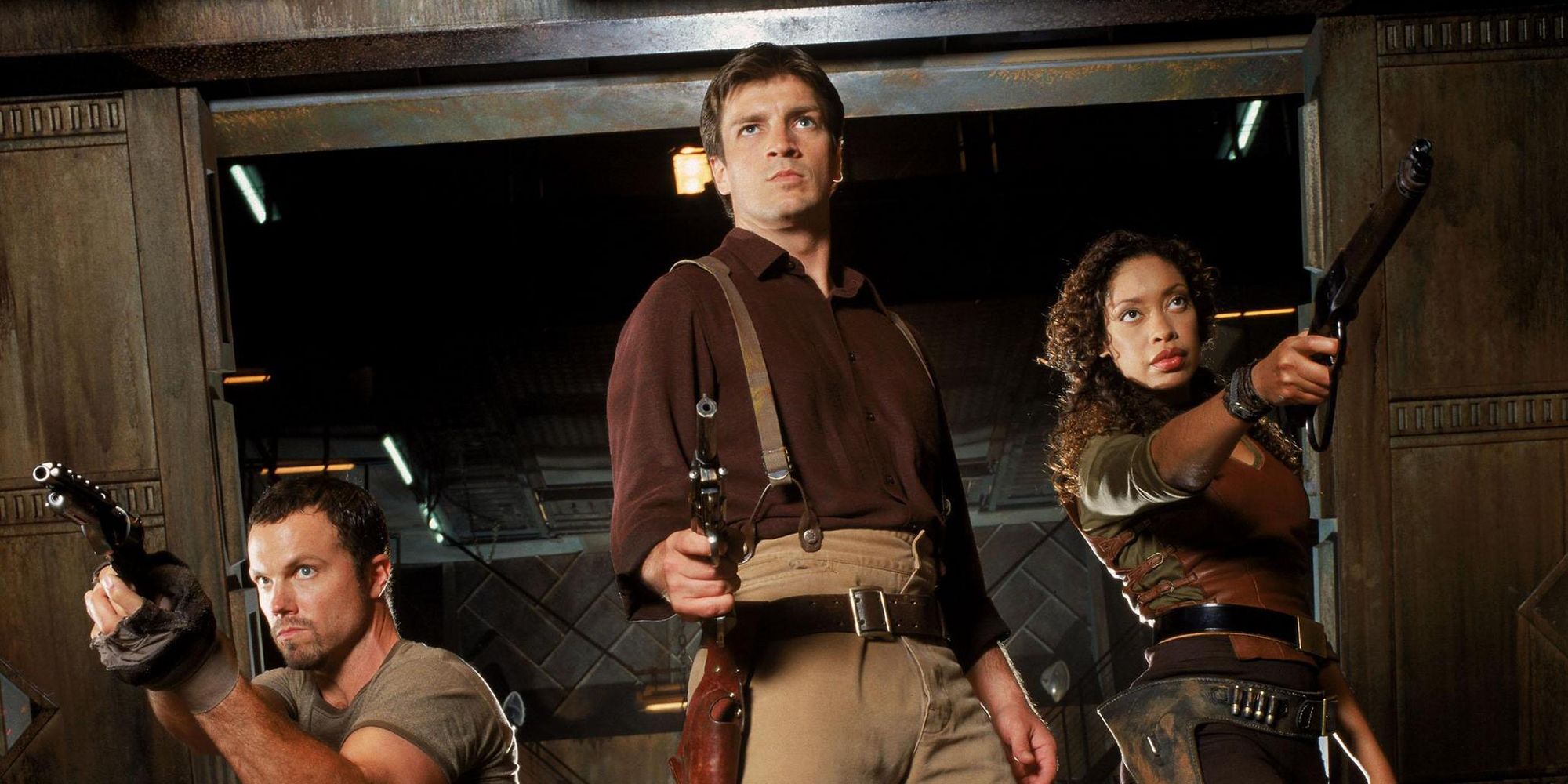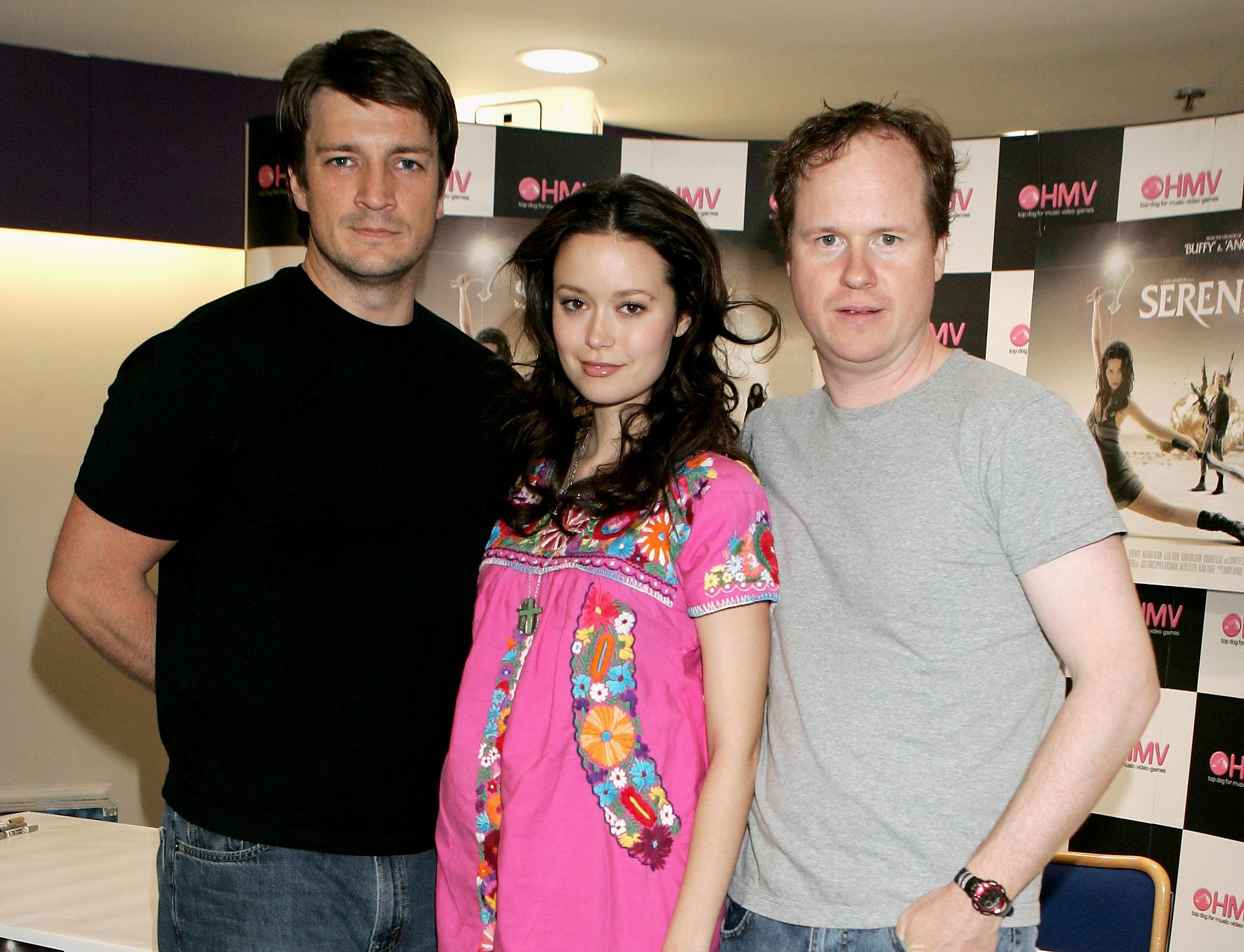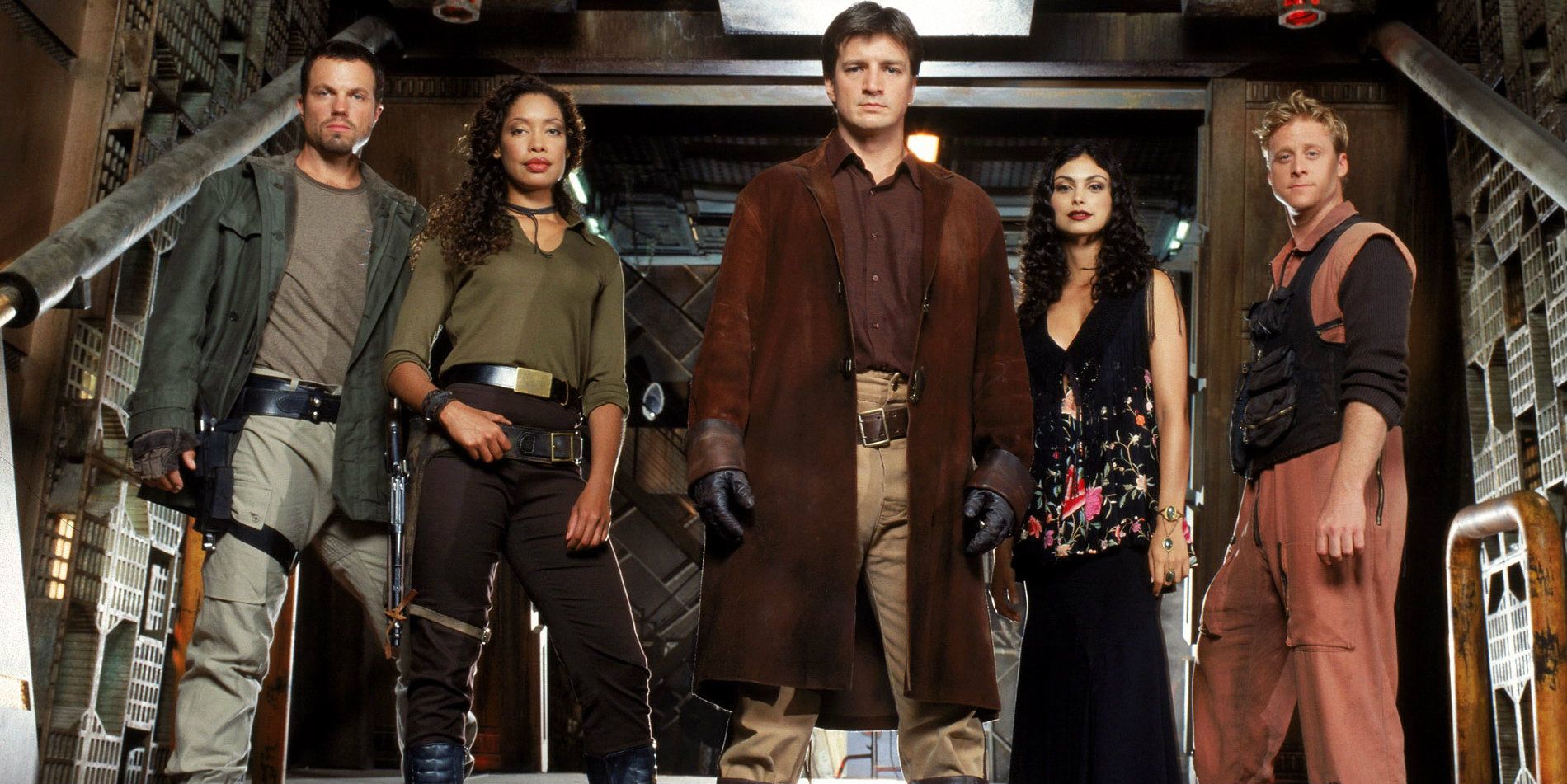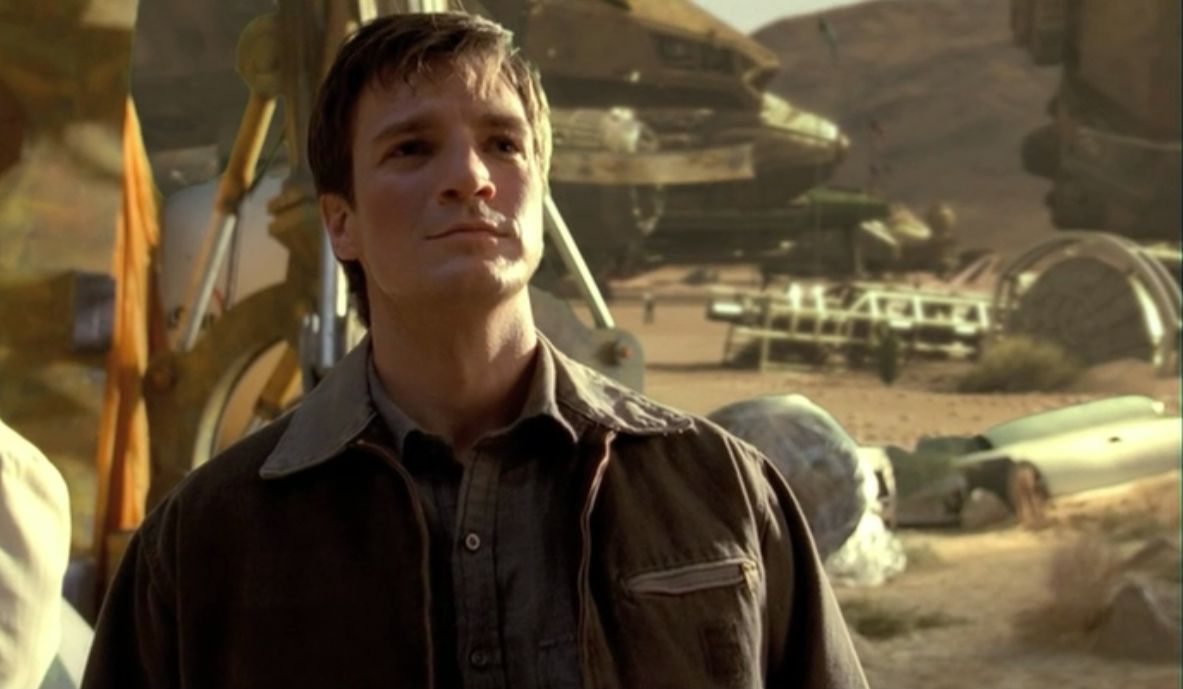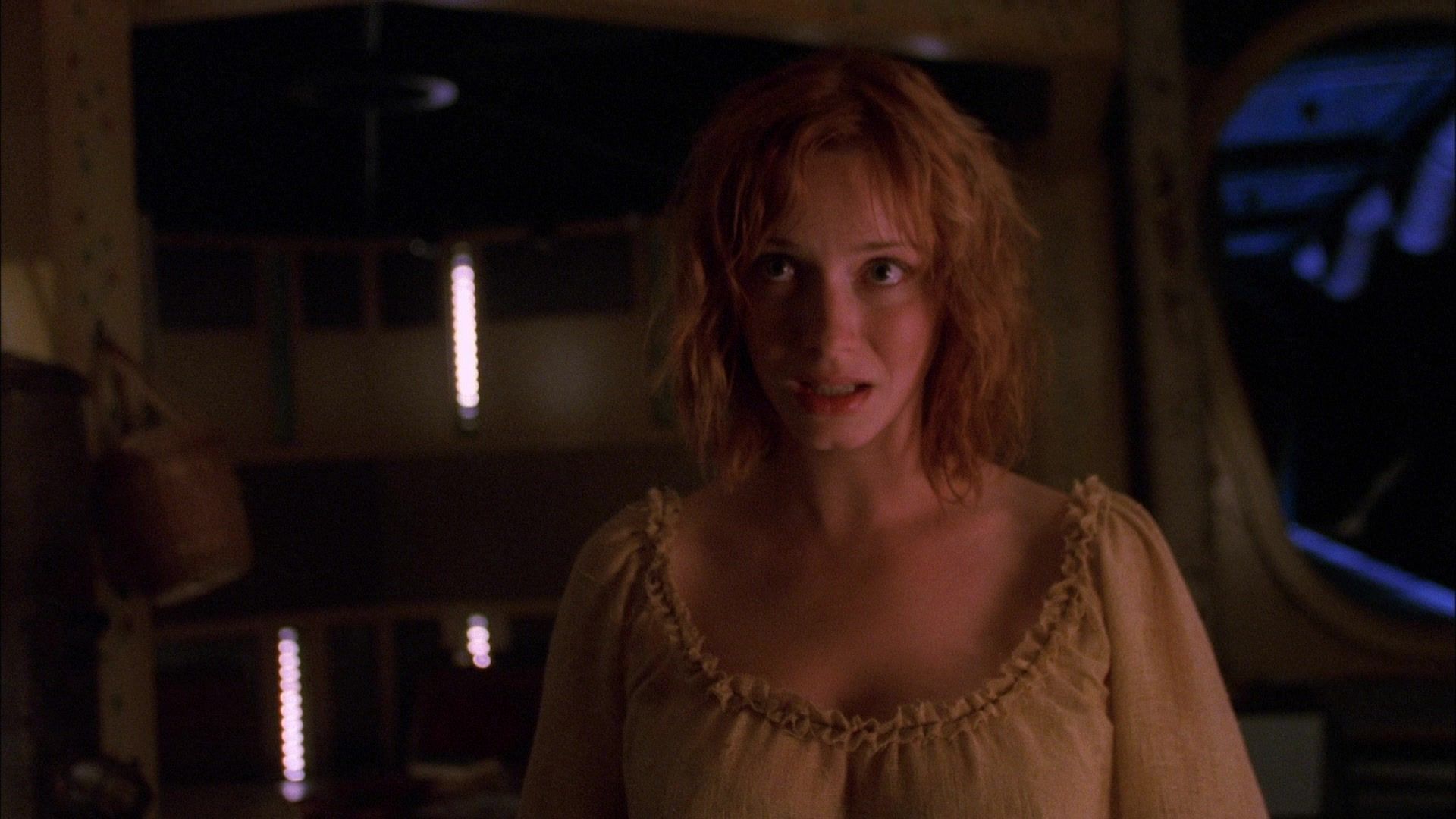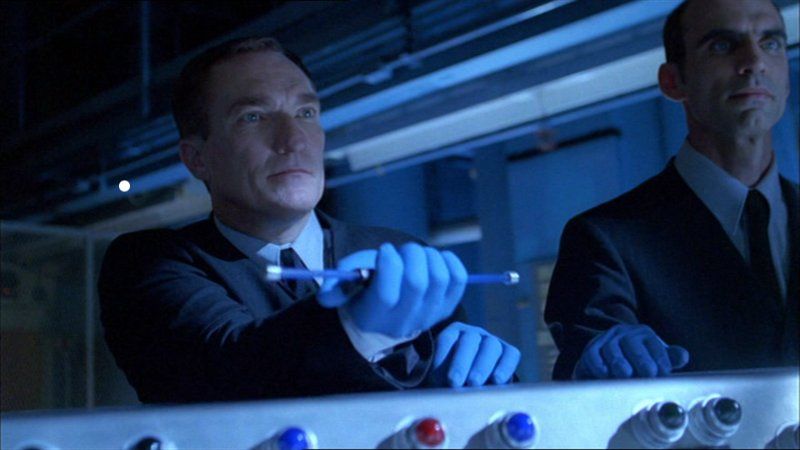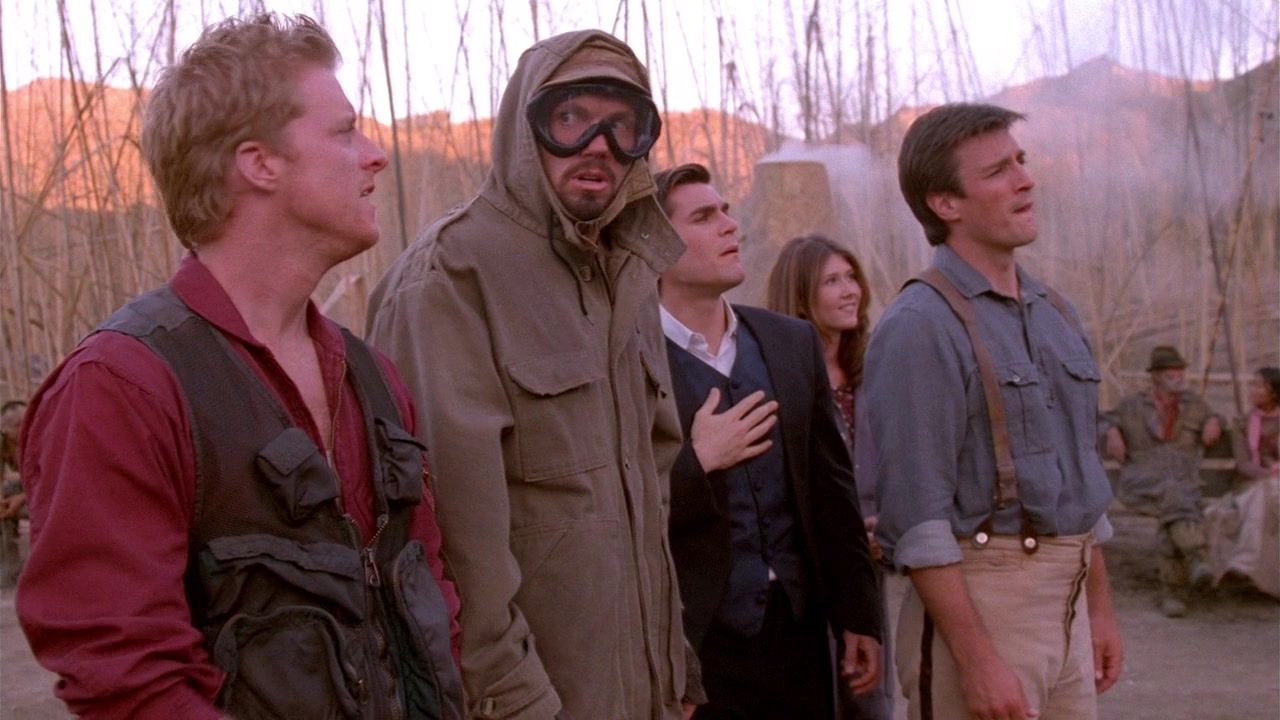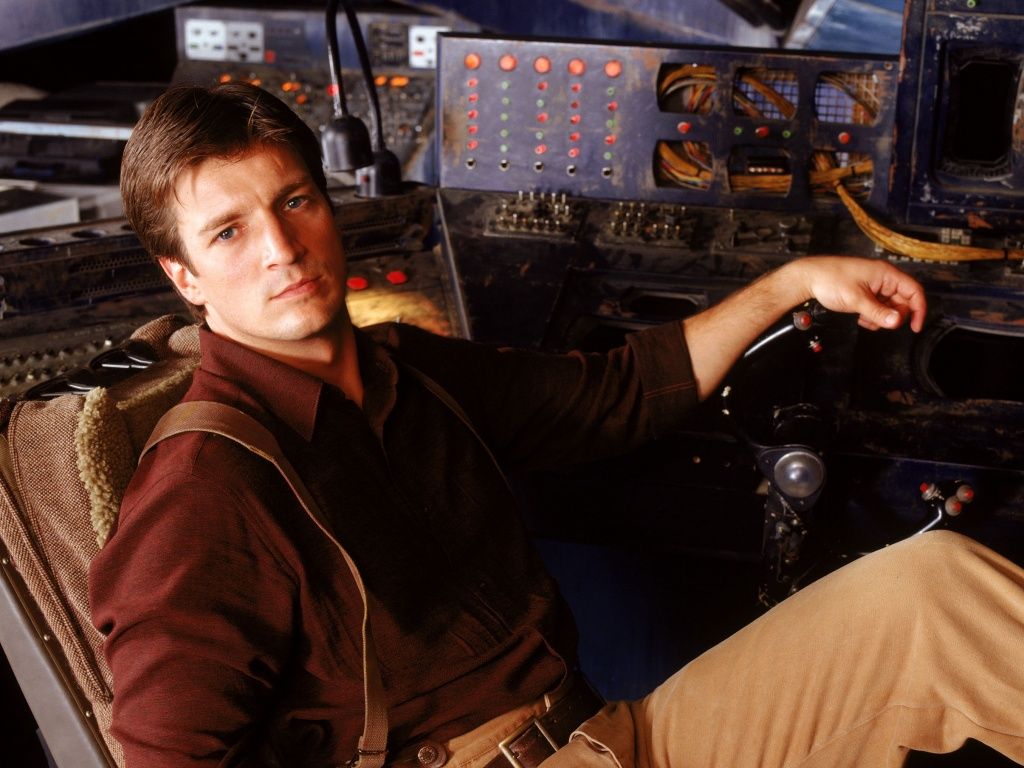If you're on the internet in 2018, chances are you've at least heard of Firefly, the cult classic sci-fi television series on Fox. Created by Joss Whedon and executive produced by him and Tim Minear, the show was a refreshing take on the space-western genre, broadcast at a time when viewers' choices for high-quality series were far fewer than today. First airing in 2002, Firefly had a notoriously difficult development cycle, which involved Fox executives seemingly doing everything they could to sabotage the show's popularity.
The show may not have made it out of its first season, but fans still grew attached to the fourteen episodes that did air, and eventually began a campaign to get more episodes--which eventually succeeded by getting Fox to greenlight Serenity, a film that tied up many of the show's loose ends. But that doesn't mean there aren't still more of those plot holes left open, and this list will count down those details and moments that didn't make sense.
There are a lot of ways shows can mess up, and you shouldn't hold errors like these against the artists that make them. That being said, Firefly aired over 15 years ago, and there are elements that don't quite hold up to the intense scrutiny of the modern TV viewer. Those parts that now cause cognitive dissonance, the plot holes that went unexplained, the narrative threads that were never resolved--these are all fair game for this list.
Naturally, spoilers ahead--although frankly, if you were gonna watch Firefly, you probably would've by now.
Here are 20 Things That Make No Sense About Firefly.
The episodes aired out of order
Firefly, as every Firefly fan will tell you, had an unfairly difficult time with its network, Fox. The show was never able to get off the ground, thanks in large part to network executives thinking audiences wouldn't connect with the story and characters.
To that end, the same executives decided to air the episodes out of order.
There is no rhyme or reason to the order in which the show finally aired. The true pilot was one of the last episodes to be shown, the fourth and fifth episodes aired after the eighth, and that's just the tip of the iceberg. It's honestly impressive that anybody was able to keep up with a show that deliberately made itself harder to parse. And then the network acted surprised when viewers were confused by the overall plot.
It was cancelled for no good reason
You would think that after haranguing the show's writers about the atmosphere, limiting their budget, and airing their episodes out of order in a bad timeslot, the executives at Fox might have given Firefly a break. Unfortunately, that wasn't the case, as the network canceled the show in the middle of its first season.
Firefly's ratings were far from good, but networks have been known to keep shows on with less. Add to that a shockingly devoted fanbase, one that campaigned for years to get the show back on the air, and it's frankly puzzling why Fox didn't give it more of a chance. However, Firefly's early cancellation is part of why it's so well known today--it gave a rosy tint to the show's brief existence.
Book’s backstory
One of the many threads left hanging when the show was canceled, Derrial Book was just a mystery fans never got to see solved. A man claiming to be a Shepherd (a kind of priest) whose past was brought into question when it was shown he had some pull with the Alliance itself, his backstory was clearly meant to be explored in later episodes.
The show was canceled too soon to explain Book, leaving fans wondering what his whole deal was.
Fortunately, while this part of the show doesn't make sense on its own, Book did get his own comic book tie-in series which delves into his personal history. Fans eager to find out more about the Serenity's Shepherd should look there.
Reavers
There are scary elements to this space-western, and most of them have to do with the Reavers, the group of bandits that hunger for particular flesh that have been driven mad by some mysterious cause. For the entire show, fans wondered just what had driven the Reavers so out of their minds--seemingly unable to do anything but scream and attack--but the film answered that question.
Still, even with that explanation, it's not like there weren't aspects of the Reavers that didn't hold up.
For instance, how are they able to coordinate entire space fleets if they can't seem to speak? And if the Alliance is devoted to hushing up the truth about them, why haven't they wiped the maniacs out already? Needless to say, the show didn't provide any answers.
Why does Inara stay with the crew?
Companions are the Firefly universe's version of high-class escorts, and they bring with them a ton of social standing. That makes it a no-brainer for the crew of the Serenity to want to bring Inara Serra along, as she instantly raises their ability to deal with higher social strata. However, it doesn't explain why Inara wishes to travel with them.
The show never got around to delving into Inara's backstory, and if it had, it might have explained exactly why a revered Companion is slumming it with a non-Alliance ship. Inara could have her pick of the litter when it comes to her transportation, and fans have to wonder what made her choose the Serenity when it doesn't seem to offer her anything she couldn't find elsewhere.
Why doesn’t Mal cut Jayne loose?
Jayne Cobb is a funny, if not entirely likable, addition to the Serenity, but just because a character provides comic relief doesn't mean it makes sense for them to be there. Jayne repeatedly comes into conflict with his captain, Mal Reynolds, usually over a disagreement with Mal's choices. And that's just the tip of the iceberg.
More than once over the course of the series, Jayne showed himself to be willing to betray Mal and the crew for extra money or power. Mal even recruited him by getting him to betray his previous employer, and Jayne actually coordinated with an Alliance officer to betray Simon and River. Mal threatens to leave Jayne to suffocate in space over this, but doesn't, because ... reasons?
River’s psychic abilities
One of the main driving plots of the show is River Tam and her pursuers. River is a gifted but damaged individual, chased by a shadowy collection of government agents and megacorporations, because their tortuous experiments on her gave her precognition--psychic powers.
While this made for a compelling storyline, it also never stopped to make sense. Firefly is set in a largely hard sci-fi world with mostly realistic science, and River basically just being magic doesn't really work with that. There's no real scientific explanation for her powers, they just kind of happen and now River can sometimes see the future. As it is, River functions as a grab bag of whatever the show needs her to be, useless innocent, unstoppable force, or creepy psychic.
Jaynestown
Even though it only ran for 14 episodes, Firefly still managed to make a few that were genuinely strange. "Jaynestown" is one of those, as it follows the crew landing on a planet where their resident thuggish oaf Jayne is somehow revered as a hero.
That alone would qualify it for this list, but it only gets weirder from there.
It turns out Jayne betrayed his partner on a botched robbery there several years back, and the townsfolk misinterpreted it as a sign of heroism. A villager even sacrifices himself for Jayne despite knowing it was a mistake, but the magistrate eventually blocks the Serenity from leaving. Finally, out of left field, the magistrate's son frees them because he is infatuated with Inara. This entire episode is just one "huh?" moment after another.
Private Tracey’s plan
Poor Tracey Smith. Private Tracey is a character that appears in the episode "The Message," initially as a body in a coffin mailed to Mal and Zoe. This turns out to be a ruse, as Mal and Zoe's army buddy has not perished, he's merely sedated to seem so. Tracey then fills them in on his plan to scam some black market organ dealers, and you'll be shocked to learn that it doesn't go well.
Tracey's plan ends in tragedy, and it's an outcome everyone saw coming.
Tracey is shown to be dumb as a sack of hammers, but this plan takes that to the extreme. It's not a bad episode or anything, but you'd really have to be a dunce to think anything like this could work--in the end, it was just so stupid it felt contrived.
The aspect ratio
Ah yes, the most interesting of all film discussions: which aspect ratio is the best? It took television a long, long time to come around to the widescreen way of thinking, and they didn't do it soon enough for Firefly. The writers and directors of the show wanted it to be in widescreen, but Fox insisted on screening it in 4:3.
This narrower ratio caused some awkwardness, both in the original broadcast and in the DVD release (which was reverted to widescreen). The show's framing was off in the early episodes, so fans watching the DVD will notice some stuff at the sides of the frame is odd: Wash will occasionally drive a nonexistent steering wheel, and other errors of that kind. And all of this could have been avoided if the executives had just listened to the creative team.
It's not as feminist as people say it is
Joss Whedon was once considered to be at the forefront of the feminist movement in Hollywood. After all, he helped make Buffy the Vampire Slayer, and Firefly has also long been considered a feminist story. However, viewers today might look back at the series and notice some stuff that isn't as woke as they might expect.
Aside from several characters throughout the show voicing their opinion that women should be submissive towards men, there's also our ostensible hero Mal, who constantly belittles Inara over her status as an escort. There are a lot of little digs like these, made worse by the fact that Whedon's former wife came forward recently to say that he was not nearly as feminist as he seemed, and used his power to cheat on her with people who worked for him.
The two pilots
We're not talking about pilots of a spaceship here. The production cycle for Firefly was notoriously difficult for Joss Whedon, as despite greenlighting the show, Fox executives seemed to fight him on every part of the creative process. Case in point: they disliked the pilot of the show so much they forced Whedon and Tim Minear to write a new, lighter-hearted pilot.
Instead of the show's true pilot, what aired in its place was "The Train Job," a more conventional television episode that had a more comedic air to it.
Whedon and Minear wrote the entire episode in one weekend, and the studios liked it enough to have it replace the original pilot. Don't be fooled, though, it's clearly not the best introduction to the series.
The end of "Out Of Gas"
"Out of Gas" is a fan favorite Firefly episode, in which the Serenity's life support and engines fail at the same time. Cast adrift in the void of space, the crew tries their best to save their own skins, which ends up with Captain Malcolm Reynolds left behind on the ship while they take an escape pod to nowhere.
Mal endures a struggle with some less-than-virtuous rescuers, and seems to repair the ship, but doesn't stay conscious long enough to call his crew back. Yet they come back on their own, for no real reason aside from Zoe telling them to. This was a fairly cheap attempt to wring out some drama at the end, causing a plot hole with no good explanation. Still, at least the rest of the episode is great.
Saffron’s plan
"Our Mrs. Reynolds" is one of the most beloved Firefly episodes, thanks in large part to a pre-fame Christina Hendricks as the sultry con artist Saffron (aka "YoSaffBridge"). Passing herself off as a simple country girl devoted to her new "husband" Mal, she later incapacitates the crew and abandons them to be destroyed at the hands of scrappers.
Here's the problem: that's a heck of a lot of effort to put in just to scrap one lousy ship. Saffron's plan involves conning an entire crew and leaving them to perish, a ton of effort and homicidal intent just to sell some scrap. Historically, scrappers don't run the most profitable businesses, leaving audiences to wonder why this plan was worth all the risk.
The Hands of Blue
One of the tensest chapters in Firefly's 14-episode run was "Ariel," which found the crew of Serenity hired by Simon Tam to smuggle him and River inside a Core hospital so that he can diagnose what exactly is wrong with her. Also appearing in that episode were the Hands of Blue, two enigmatic agents who would stop at nothing to retrieve River.
First introduced in "The Train Job," the Hands of Blue were never explained.
They were simply two agents on the Tams' trail, without names, who used eerie technology to wipe out anything that stood in their way. The show was just canceled too early to make good on any of this--and unless they read the tie-in comics fans only ever saw them as a big question mark.
The primitive planets
One of the more charming aspects of Firefly was its worldbuilding as a space-western, which allowed for advanced science fiction and classic western narratives. The problem with this was that the two halves weren't always compatible with one another--especially when viewers thought about the technology of the various planets.
There are a ton of planets showcased in the series that have extremely primitive cultures, whether it's based on extreme poverty, religion, or something else, but it's never explained exactly how the social structure has remained so oppressed. Remember, Firefly is set in the 2500s, with incredible technology available. Yet there doesn't seem to be any kind of internet or any way for some planets to catch up to that--despite the fact that they would have needed space travel to get where they are.
Blue Sun
In the world of Firefly, the Alliance government and megacorporations are occasionally indistinguishable, but none of those organizations seems to top Blue Sun. The Blue Sun Corporation sells packaged foodstuffs and other basic goods, and have so controlled their market they seem as powerful as the government itself.
It is repeatedly implied (both in the series and in the film) that Blue Sun is at least partially responsible for the experiments and attacks on River Tam, but they are never outright exposed. There were plans to explore this shadowy organization in future seasons, but as it stands fans will have to make do with the extremely vague, unenlightening hints given throughout the show.
Inara’s syringe
This is one of those untied plot threads that we're all very glad was never tied off. Inara Serra is a Companion with a mysterious past living on the Serenity, and she also possesses a steely resolve and a cool head in a crisis. One of the most disturbing examples is Joss Whedon's plans for a future episode involving her and Reavers, which centered on her mysterious syringe.
It was never explained in the show what the syringe was for, but apparently Whedon's idea was for it to be a poison Inara used on herself that would terminate anyone who violated her without her consent. Mal would then find her on a ship full of no-longer-breathing Reavers, leading audiences to infer the horrific reality. Yeah, this is one point we'd have been happier to leave unexplained.
The Confederate apologia
When Firefly first aired back in 2002, fans dug into the lore of a universe which had been torn apart by a kind of civil war between the more independent fringe colonies and the technologically advanced Alliance. Viewers who understood the parallels most likely enjoyed the references to the American Civil War, reimagined where the rebellion wasn't in favor of slavery.
However, nowadays, with politics the way they are, viewers are far less comfortable with the show's obvious references to the Confederacy. With the debates in America raging about whether statues of Confederate leaders should be torn down, this affectionate reimagining begins to feel more than a little problematic. Since the heroes here were Browncoats, Firefly's version of Confederates, the show seems to rehabilitate the images of real-life men who fought to enslave others.
No Asian castmembers
One of the more intelligent parts of Firefly's worldbuilding was its incorporation of Mandarin Chinese (or at least, a slang-influenced, badly pronounced version of Mandarin Chinese). English and Mandarin are both spoken by the main cast members, as Mandarin was one of the dominant languages from Earth-that-was.
So it's something of a surprise to see that there is not a single main cast member of Asian descent in the show--in fact there are hardly any in the entire series at all.
Apart from a couple of extremely minor side characters, Asian people are noticeably absent, something fans have looked back on with less and less comfort. For a show that prided itself on cultural fusion and diversity, this omission seems poorly thought out, to the point of insensitivity.
---
What do you think, space cowboys? Did we miss any other Firefly detail that just doesn't seem to make sense? Sound off in the comments!

